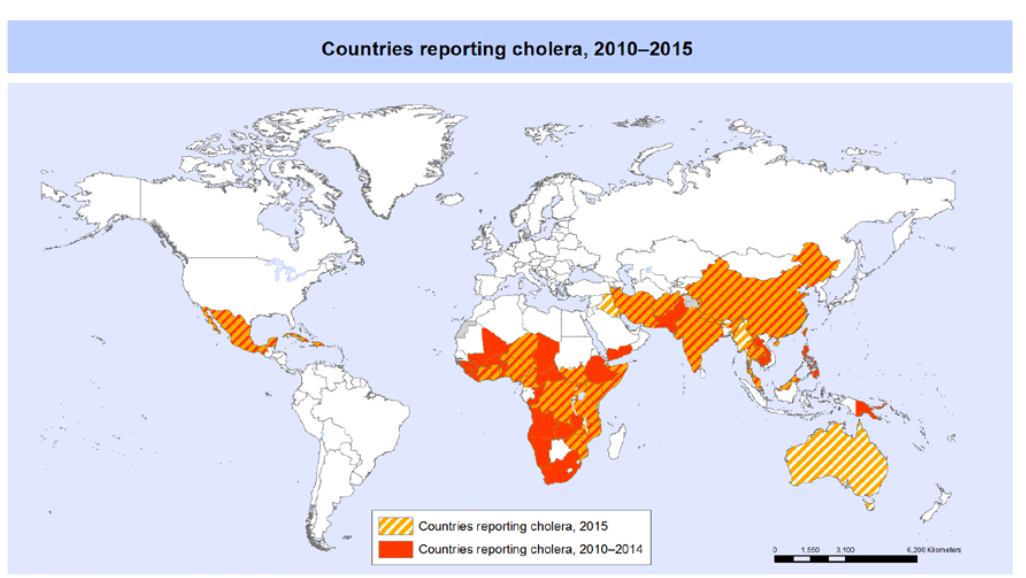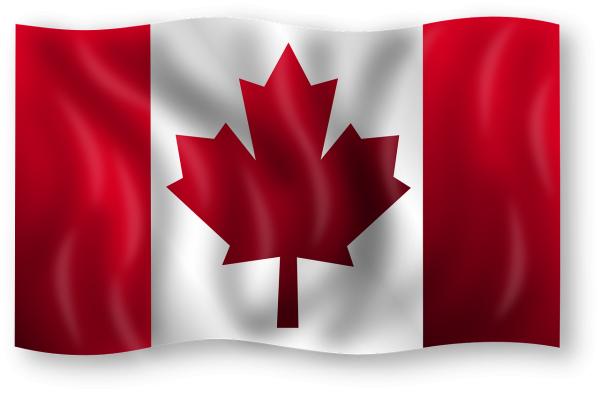Cases of cholera can be found all over the world. That said, they are not typically found in certain places - like Canada.
In 2016, major cholera epidemics affected West Africa, Yemen, and Haiti when the United Nations peacekeepers brought cholera to Haiti in 2010, following the earthquake. The map below shows the countries reporting cholera in 2015 (dashed lines) and from 2010-2014 (orange shading.)

World Health Organization
It is easy to see, from the map, that the United States and Canada do not typically have to worry about cholera. Although people did suffer from cholera in these areas in the 1800s, it has been largely eradicated from the area.
However, this week, four people have been infected with cholera in British Columbia - something that has never happened before in that area.
How did this happen?
Cholera is caused by the bacterium Vibrio cholerae. An infection leads to huge volumes of profuse, watery diarrhea-causing rapid fluid loss and death by dehydration. Because V. cholerae lives in the water, the disease cholera is easily prevented by access to clean water and sanitation.
Vibrio cholerae can exist in two different environments: the small intestine of the human body and in an aquatic environment. When the bacteria live in the water, they are typically found attached to other aquatic animals like copepods or egg masses.
The leading hypothesis behind the cases of Canadian cholera follows along these lines. Because cholera in Canada is incredibly rare, it makes sense that the bacteria would be from eating infected fish eggs harvested on the coast of Vancouver Island - something that is happening at the moment.
"These illnesses have been associated with herring egg consumption," Dr. Shannon Waters, a medical health officer with Island Health, said. "The spawn had just happened earlier this month. People had harvested and were distributing between family, friends, communities."
Why the bacteria are in these egg masses for the first time is another mystery. Waters said health authorities don't know exactly where the illness is coming from, but it could be a symptom of the changing marine environment.
"Our oceans are a valued resource for food, travel, recreation and they're under pressures from sewage, from boat traffic and from rising temperatures. Our health is connected to the oceans and I think this is a sign of that," Waters said.
Until they get to the bottom of this, the health professionals in that area are asking people in the area to wash their hands thoroughly, report symptoms to a physician and contact them if they learn of any stored herring eggs.
Source: https://www.ctvnews.ca/health/rare-cholera-outbreak-on-vancouver-island-...




